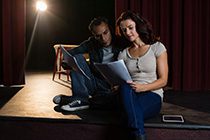Best editing tips and tricks to clean up any content

Though it might not be your position title or in your job description, I’d venture to guess that most—if not all—professionals are editors at some point. Your days may not be filled with copyediting or proofreading, but you likely look over presentations or emails or other deliverables regularly. You want to sound smart, and typos won’t help.
Looking for some tips to help you be a better editor? We’ve got you covered.
- Create space where you can focus: Anyone who has ever edited anything knows editing requires focus. You have to pay special attention to your words and sentences and how they all fit together. If your content is complex or technical, it can be even more challenging. You need a space where you can focus. Ideally, it will be quiet and free from distractions. If your content is particularly tricky, try editing earlier in the day when your mind is fresh. Sometimes you may need to take a break. Work on something else or go for a short walk. Then come back ready to review again. Another way to stay focused…
- Read out loud: Reading out loud forces you to slow down. If I find myself reading and rereading the same sentence, I always read out loud. Reading out loud can also help you spot issues that your brain might skip over when you read silently. When you’ve been working on a project, your brain knows what you are trying to say. So, you may miss something small like, “we have go to the meeting” or “you book is on the desk.” Reading out loud can also help you work through lines that might read awkwardly.
- Know your “red-flags”: As an editor, there are rules I know so well they almost come as second nature. But there are also rules I struggle with. I know many editors with grammar bugaboos. They might not tell you what they are—we editors like being seen as all-knowing grammar gurus. But good editors know their red flags and watch out for them. One of mine, “affect” vs. “effect.” Every time I see one of those words, I pause and make sure I have the correct one. Also, hyphens. I check every hyphen I see.
- Know where to find answers: Speaking of hyphens—there are so many rules associated with those little lines that I’ve opted to memorize where to find the answers to hyphen questions rather than all the rules. As much as we editors would like to be all-knowing grammar gurus, we aren’t. We know a lot, but occasionally, we come across an issue that we haven’t seen before or haven’t seen in a long time. In that case, your style guide or Google become your best friend. It’s OK to not know the answer—you just need to know where to find it.
- Use grammar resources: Spell check. Use it. But as we all know, spell check doesn’t always catch everything—though it’s getting better. Consider using applications like Grammarly.
- Create space where you can focus: Anyone who has ever edited anything knows editing requires focus. You have to pay special attention to your words and sentences and how they all fit together. If your content is complex or technical, it can be even more challenging. You need a space where you can focus. Ideally, it will be quiet and free from distractions. If your content is particularly tricky, try editing earlier in the day when your mind is fresh. Sometimes you may need to take a break. Work on something else or go for a short walk. Then come back ready to review again. Another way to stay focused…



 Next Post
Next Post

